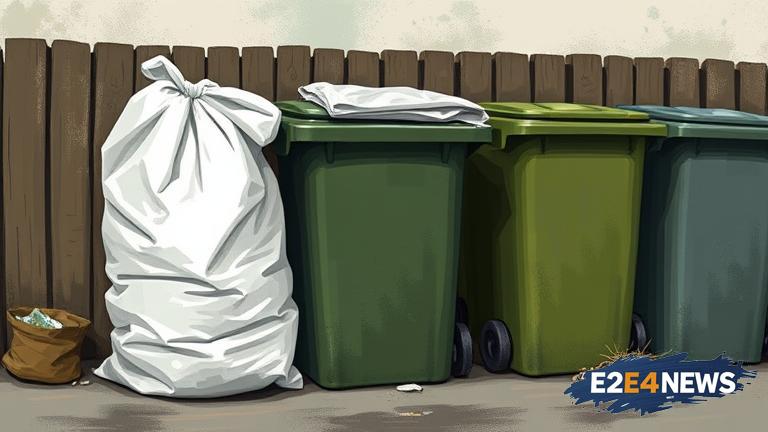The cost of bin liners in Belgium has been a topic of interest lately, with many wondering why they are so much cheaper than in other European countries. According to recent reports, the price of bin liners in Belgium is significantly lower than in neighboring countries, such as the Netherlands and Germany. This has led to a surge in demand for Belgian bin liners, with many consumers crossing the border to stock up on the affordable waste bags. But what is behind this price difference? One reason could be the high level of competition in the Belgian market, which drives prices down. Additionally, the country’s proximity to major plastic production facilities may also contribute to the lower costs. Furthermore, the Belgian government’s environmental policies, which encourage the use of recyclable materials, may have led to an increase in the production of eco-friendly bin liners, making them more affordable for consumers. However, some experts argue that the low prices may be a result of the use of lower-quality materials, which could have negative environmental impacts. Despite this, many consumers are taking advantage of the cheap bin liners, with some even reselling them online at a profit. The phenomenon has also sparked a debate about the environmental implications of using cheap, potentially low-quality bin liners. Some argue that the use of these bags could lead to an increase in litter and pollution, while others claim that they are a necessary evil in the fight against climate change. As the demand for affordable bin liners continues to grow, manufacturers are responding by increasing production and expanding their product lines. In fact, some companies are now offering a range of eco-friendly bin liners made from sustainable materials, such as cornstarch and sugarcane. These biodegradable bags are not only better for the environment but also comply with the European Union’s strict regulations on single-use plastics. Meanwhile, the Belgian government is encouraging consumers to reduce their waste output by implementing recycling programs and promoting the use of reusable bags. The country’s waste management system is also being revamped, with a focus on reducing landfill waste and increasing recycling rates. As a result, the demand for bin liners is expected to decrease in the coming years, which could lead to a shift in the market towards more sustainable and eco-friendly products. In conclusion, the low cost of bin liners in Belgium is a complex issue with multiple factors at play. While the cheap prices may be attractive to consumers, it is essential to consider the potential environmental impacts and the need for sustainable waste management practices. As the world continues to grapple with the challenges of climate change and pollution, the humble bin liner has become an unlikely symbol of the struggle between affordability and sustainability. The Belgian government’s efforts to promote eco-friendly practices and reduce waste output are a step in the right direction, but more needs to be done to address the root causes of the problem. Ultimately, the key to a more sustainable future lies in finding a balance between affordability and environmental responsibility. By choosing eco-friendly bin liners and adopting sustainable waste management practices, consumers can play a crucial role in reducing their environmental footprint and promoting a healthier planet. The bin liner conundrum in Belgium serves as a reminder that even the smallest everyday items can have a significant impact on the environment, and that collective action is necessary to create a more sustainable future.
